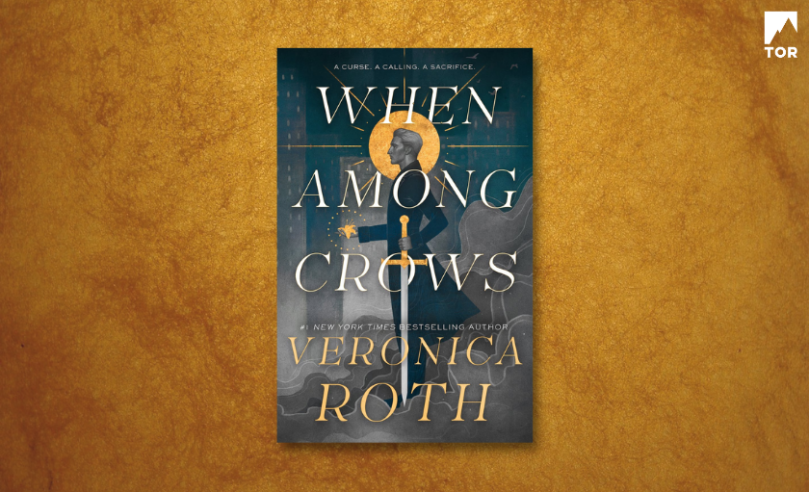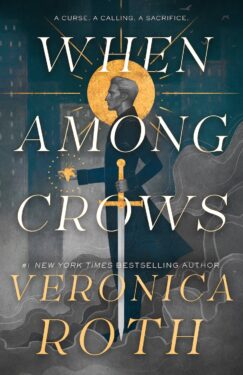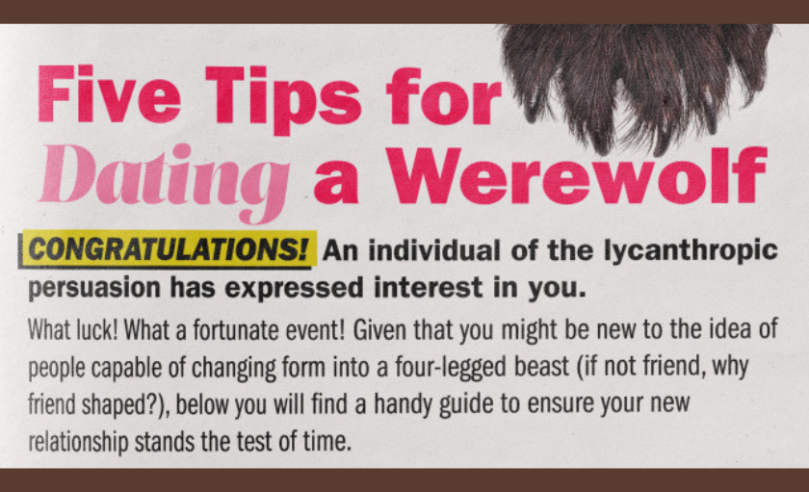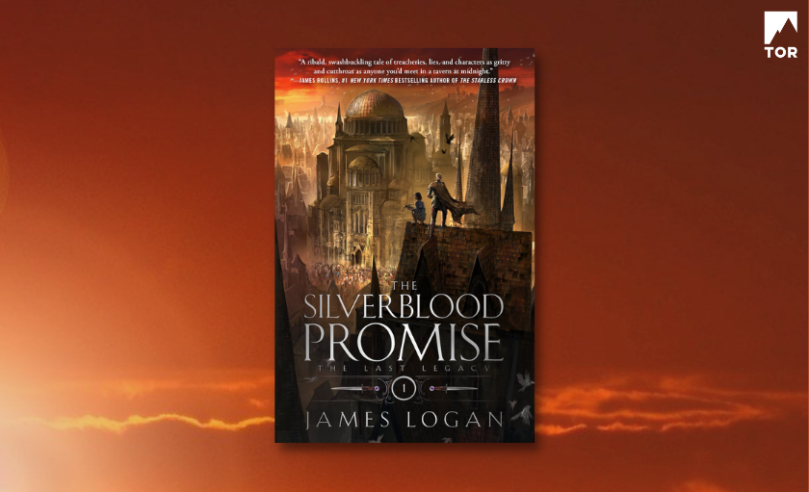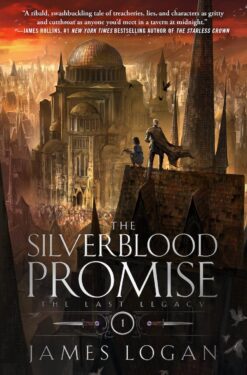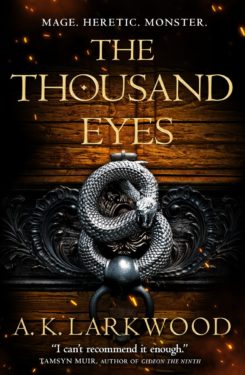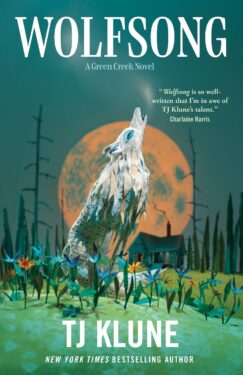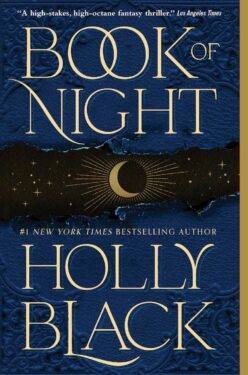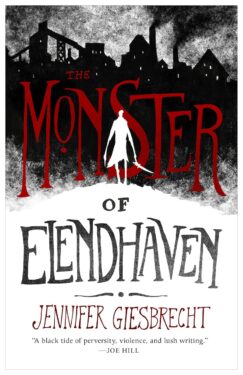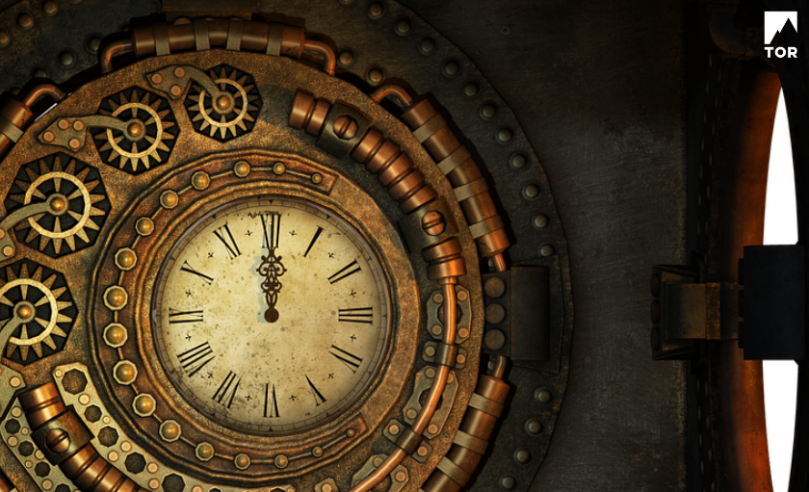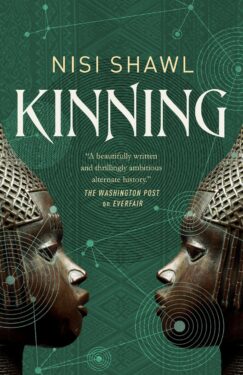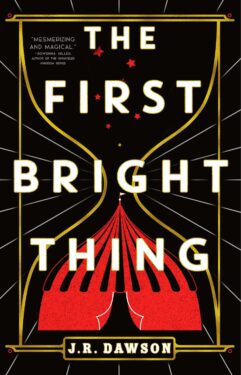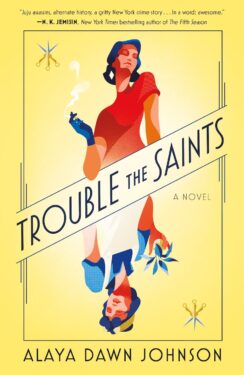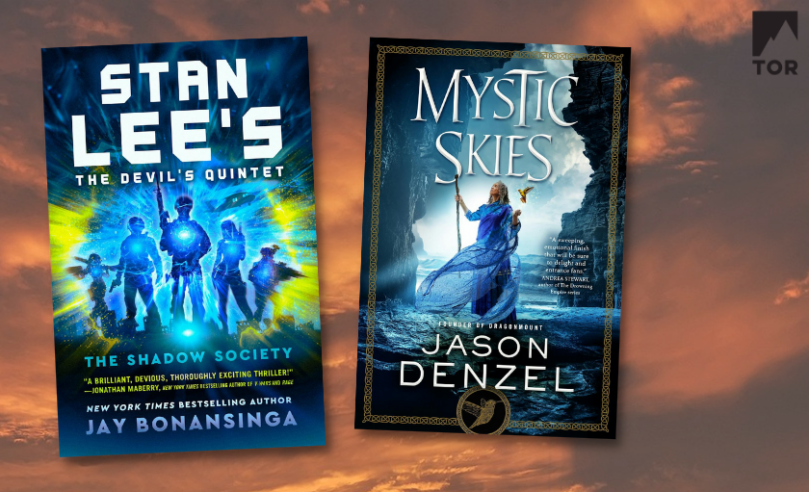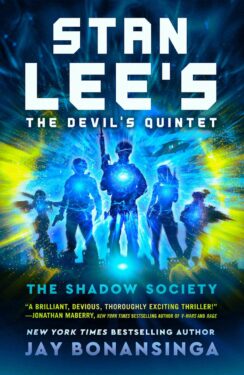Step into a city where monsters feast on human emotions, knights split their souls to make their weapons, and witches always take more than they give.
Pain is Dymitr’s calling. To slay the monsters he’s been raised to kill, he had to split his soul in half to make a sword from his own spine. Every time he draws it, he gets blood on his hands.
Pain is Ala’s inheritance. When her mother died, a family curse to witness horrors committed by the Holy Order was passed onto her. The curse will claim her life, as it did her mother’s, unless she can find a cure.
One fateful night in Chicago, Dymitr comes to Ala with a bargain: her help in finding the legendary witch Baba Jaga in exchange for an enchanted flower that just might cure her. Desperate, and unaware of what Dymitr really is, Ala agrees.
But they only have one day before the flower dies . . . and Ala’s hopes of breaking the curse along with it.
Please enjoy this free excerpt of When Among Crows by Veronica Roth, on sale 5/14/24
A PRELUDE
This isn’t the forest guardian’s usual haunt. Every other day of the year, he stands guard over the huddle of trees in the Montrose Point Bird Sanctuary along Lake Michigan, where the water’s stink is rich as chocolate to his bone-dry nose. But every year in June, on Kupala Night, he makes the journey to St. Stanislaus Kostka Church in West Town to guard the fern flower as it blooms.
He doesn’t like it here. He doesn’t like how his hooves sound on the wood floor, sharp and echoing. He doesn’t like the ceiling that blocks his view of the stars. And he doesn’t like religious spaces, in general—the obsession with wrong and right, purity and pollution, modernity and eternity, it doesn’t make sense to him.
But this is a natural place for deep magic, because it was bought at a great price. People came from the old country to the new to earn their bread, and they scraped the very bottoms of their wallets to build this place for themselves, though their wallets were not very deep. That kind of sacrifice creates a debt, and there’s nothing magic likes better than the great hollow of a debt. And so magic nestled here, heedless of what the adherents of this particular religion would think of it. It draws the leszy here, too.
The sanctuary is still and silent. The leszy tilts his horned head back to look at the mural painted on the dome above him. All the host of heaven, perched on clouds, stare back down at him.
The sanctuary doors open, and when the leszy lowers his head, a mortal man stands at the end of the aisle.
Unearthly smoke curls around the man’s black boots, the remnants of a sacred fire. There are many sacred fires lit on Kupala Night; this man must have leapt across one, to receive its blessing. Likewise, there’s a spray of white flowers— wormwood—tucked into one of his buttonholes, no doubt plucked from a vila’s crown of greenery. If the leszy’s senses hadn’t already told him this man wasn’t ordinary, those two blessings would have done so. He came prepared for the task at hand.
And there is only one task that could possibly be at hand: plucking the fern flower when it blooms.
The man stops at a distance from the leszy, and holds his hands behind his back like a soldier at ease. He looks wary, but not frightened, and that’s stranger than all the rest of him.
He only comes up to the leszy’s breastbone, and he’s half as broad. The leszy has the body of a man stretched beyond its capacity—long arms that end in big, clawed hands; sturdy, split hooves; and a stag’s skull as a head. His staff is the size of a sapling. Moss grows on his broad, flat shoulders, and flowers bloom in his eye sockets.
“Turn back,” the leszy says. His voice is like a tree tilting in the wind.
“My lord leszy,” the mortal man says to him, with a quick bow. “There are rumors of the fern flower in Edgebrook Woods and in all the parks that border Lake Michigan.”
“Then what reason can he possibly have for coming here?” the leszy asks.
The man tilts his head. His hair is the gray-brown color as the tree bark in the leszy’s usual sanctuary. His eyes are the same shade, as if painted with the same brush.
“One thing all the rumors have in common is you,” the man says. “So I followed you here.”
The leszy stands in silence. He remembers very little about his journey from the Montrose Point Bird Sanctuary earlier that day. Cacophonous streets crowded with metal and plastic. Air thickened by exhaust. The sky crowded by buildings. He was guided only by his own sense of purpose—A holy kind of purpose, he thinks, with the mural of the heavenly host still staring down at him.
He doesn’t recall the man. But since the man stands before him with no apparent motive for deception, the leszy supposes he’s to be believed.
“So where does it bloom? In the courtyard? In the stoup of holy water?” The man tilts his head again, and a mischievous smile curls his lip. “In the altar?”
There’s something in the cadence of his voice that the leszy recognizes from long ago.
The leszy came here as so many of his kind did, less than a century ago, to escape the cruelty of the Holy Order that hunts all creatures who walk or crawl this earth. They came among mortals who were escaping other cruelties— mortal ones, though no less harrowing for it. He thinks fondly of the refuge those mortals offered him, the kinship they found in shared pain and shared escape.
He dwelt elsewhere before, playing guardian to a small patch of woods in the old country, right along a river, as is his preference. But he came here to escort a mortal woman. Or more accurately—to escort the plant that the woman carried. A fern swollen with the potential to flower on Kupala Night.
She, too, was driven by almost-holy purpose, unable to explain her attachment to the plant that she carried across the sea. He can feel the dirt that she scraped from beneath her fingernails after she lifted the fern from its pot to place it upon the altar, and the roots of the plant twisting into the stone there, impossibly. He can smell the incense from the thurible and he can hear, somehow, the chanting voice of Baba Jaga, the one who bewitched them all—
“What is he?” the leszy asks the man.
“I am a supplicant,” the man replies.
“He is a fool. Turn back.”
“I know you guard the fern flower. I know you’re tasked with keeping out the unworthy. How do I prove to you that I’m worthy?”
“He expects answers but does not give them. Turn back.”
“I am,” the man says gently, “a supplicant. And I won’t turn back.”
The leszy leans into his staff. The man has now refused him three times.
“A contest,” the leszy says. “If he wins it, I will stand aside. If he loses it, he will turn back.”
“A contest of what?”
“Something he can do that I can also do. Does he dance?”
The man smiles. “No, my lord. Not unless enchanted by vila.” He taps a toe on the floor, to draw attention to the trace of sacred fire still clinging to his boots.
“Does he sing?”
The man shakes his head.
“He is raised to violence, as all of his kind are,” the leszy says. “Perhaps he can wield a bow.”
“As it happens,” the man says. “Yes.”
The leszy nods. He raises his staff—an old branch, crooked and dry—and suffuses it with life to make it pliant, like a young sapling. Then he reaches up to his eye socket, and plucks one of the flowers that grows there. It comes out with blossom and stem and white root all together, pinched between his claws.
All the plants of his forest owe him a debt, so when the leszy asks, the plant responds, growing long and thick as string. He fastens each end of it to the now-bent staff to make a bow.
The man watches. He marvels, as a mortal marvels, but his breath doesn’t catch.
The leszy has known men for centuries. The ones who know how to see him also know that they should fear him.
The only ones who don’t fear him are the ones who prefer him dead. This one is an oddity, neither fearful nor murderous.
“What is he?” the leszy asks again, picking up a pencil from the nearest pew to grow it longer and sharper, so it resembles an arrow.
“I’m a supplicant,” the man says. “That’s all.”
“It’s not ‘all,’ or even much of anything.”
“It’s enough.”
The leszy can’t argue with that. Having finished fashioning the bow and two arrows, he sets them aside on a pew while he finds a target. Though he doesn’t share this mortal reverence for the saints, he doesn’t like the idea of using one of them as target practice. It seems unwise.
The leszy urges one of the plants in his eye socket to bloom, filling the space of the one he plucked. He points at one of the paintings on the wall diagonal from him. They’re fixed between the windows, each one depicting a significant moment: a man on a cross, a man multiplying bread and fish, a woman washing a man’s feet. But this one is in a garden.
“The target will be that one’s eye,” the leszy says.
At the mortal man’s raised eyebrow, the leszy adds, “Surely you do not object to the eye of a snake as a target?”
“My objection is to the defacing of private property. I have no interest in getting arrested,” the man admits.
“I will mend it when we are finished.”
The man nods. The leszy nocks the arrow and draws the bow taut. He breathes the musty smell of incense. He releases the arrow, and it stabs directly into the eye of the serpent, curled around a young woman’s ankle in the Garden of Eden.
He then offers the bow to the man.
“If he nestles his arrow beside mine,” the leszy says, “I will consider him the victor.”
The man takes the bow from him. At first, the leszy isn’t sure he’ll have the strength to draw it—the leszy is much larger than the man, and if he were ordinary, he wouldn’t even be able to pull the string. But whatever he is, he’s stronger than most. He places the arrow and draws it, and breathes deep and slow.
Even before he releases the arrow, the leszy knows the man won’t win. His hands are too unsteady on the bow, the weapon too big for him. The arrow buries itself in the serpent’s throat, just below the target. The man’s head drops, and he offers the bow back to the leszy.
It’s only then that his hands tremble.
“Please,” the man says.
The leszy has heard men say a thousand things. Dares and challenges, questions and demands, prayers and bargains. He has rarely heard them beg.
“Please,” the man repeats. “I know enchantments surround the fern flower, and they’ll test me. All I ask is that you let me be tested.”
The leszy detaches the string from the bow, and straightens it, dries it, stiffens it until it becomes his staff again.
“Many have sought the fern flower,” the leszy says. “They seek a talisman that will bring them happiness and wealth, power and wisdom. Or they wish to trade it so they can carve a new path for themselves, or bring illumination to their short and dark lives. Sometimes, the most selfless among them even seek special healing for brothers and sisters, mothers and fathers, friends and lovers. For which of these purposes does he seek the fern flower?”
“None,” the man replies. “I seek it for a stranger. A . . . creature.”
The leszy knows that men lie. He tilts his head back to look at the ceiling again, the crowd of people draped in robes and listening to holy pronouncements.
“Kupala Night is a night of whims,” the leszy says, and he steps aside, gesturing to the altar behind him.
“Thank you,” the man says softly.
“Once he faces this test, he may wish he hadn’t thanked me.”
With a tap of his staff, the enchantment that shrouds the altar lifts. Growing from the center of the stone top is a lush green fern.
The flower is about to bloom. The air feels like a stitch drawn taut against a hem, or lips braced against a whistle. The man walks past the leszy to the altar, and it’s fitting, the leszy supposes, that someone who calls himself a supplicant should approach an altar in this way.
Something shifts in the center of the fern: a stem. It grows like a drawbridge raising, the leaves around it creaking and shuffling to accommodate it. It grows like time speeding forward, but only in this sliver of space that the fern occupies. The leszy watches as the bud of the flower swells, and when it breaks open, the man falls to his knees. He reaches for the flower, but halfheartedly, as if he doesn’t expect to touch it.
And indeed he doesn’t.
Power surges in the air. It rages around the man like a powerful wind, though the pages of the hymnals left open on the benches and the delicate violets in the leszy’s eye sockets don’t stir with its force. It’s so strong that it lifts the man from the ground and splays his limbs, as if he’s a puppet raised by its strings.
The man screams, but only for a moment before the force—whatever it is—wraps around his mouth and silences him. His fingers constrict in the air at odd angles, as if they’re breaking—no, they’re the spasms of someone in pain.
The leszy steps back down the aisle when the girl appears.
She’s young. Hardly more than a child. Small, with sallow cheeks and a bare rib cage instead of a chest, though the rest of her appears to be covered in flesh. Beating in the rib cage is a heart, black as tar, that follows the same syncopated rhythm as a human heart. Her eyes are milky white all the way through. She carries a sickle far larger than she is, with a wicked, gleaming blade.
She is a południca—a noonwraith. She’s not at home in the dark any more than the leszy is at home indoors. But for the fern flower, she makes an exception. All of those whom Baba Jaga tasks with its protection do.
She looks up at the man, and blinks slowly.
“What is within you?” Her voice is high and girlish. She tilts her head to the other side, the movement a little too fast, a little too bent. “I must know.”
She drums her fingers on her breastbone, and the man collapses to the ground, the force holding him up disappearing. She bends down and wraps her long, clawed fingers around his jaw. She wrenches his face toward hers. He’s trembling, and his eyes are full of tears.
“Give me your name, and I will be able to open your heart,” she says.
His next breath shudders on the exhale, and he doesn’t respond. He is watching her black heart pulsing between the rib-bars of its cage.
“I must open your heart to determine if you are worthy of this prize,” she says.
His tongue darts out to wet his lips. He says, in a weak, cracking voice: “Dymitr.”
“Dymitr,” she whispers, and she releases him.
She steps back and sits on the edge of the altar, and the leaves of the fern stretch toward her. She wears a ragged white dress, tattered at the hem and open across her bone torso. She drums her sternum again, considering the man. Then she gestures, sudden and sharp.
The man gasps, and his shirt opens over the chest, baring the red rosette he painted over his heart—another protective symbol, the leszy notes—
And then a spray of blood strikes the altar like a dusting of holy water as his skin peels away from his chest—
And then muscle and bone, cracking and breaking apart, though his screams are, yet again, inaudible—
And the leszy stares at the man’s heart, pulsing red and strong in his chest. Blood trickles down the man’s breastbone. The noonwraith’s eyes glow like the moon. She taps a claw against her lips.
“Oh, my,” she says softly, after a moment. It’s a sigh, and the leszy can’t tell what kind.
“What is it you see, my lady?” the leszy finally dares to ask.
She looks at him as if only just noticing him, though they’ve met before. Few mortals make it to this point, but “few” is not “none.”
“He will have the flower,” the noonwraith says.
“My lady?”
“That is my word. And my word is my word.”
With that, she turns and walks away, and with each step she takes into the church sanctuary, she descends farther into the earth, as if walking down a staircase. The man’s ribs knit together over his heart, and his muscle and skin layer back over bone, and he collapses forward with a moan. He is sweat-soaked and trembling.
And just out of reach in front of him: the soft red light of the fern flower, now in full bloom.
Copyright © 2024 from Veronica Roth
Pre-order When Among Crows Here:

